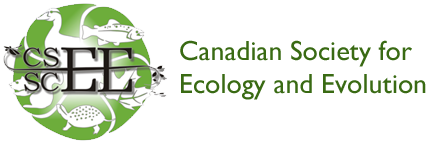Future Coastal Ecosystem Scenarios Postdoctoral Position
Project Context and Goals: Solutions are urgently needed to reduce greenhouse gas emissions and limit further planetary warming. Meeting Canada’s GHG emissions-reductions targets requires an accounting of all mitigation options, including Canada’s ocean carbon sinks. In coastal oceans, blue carbon ecosystems (salt marshes, seagrass meadows, kelp forests) sequester carbon from the atmosphere and ocean and store it in biomass and sediments. Uncertainty about ocean carbon reservoirs has hindered inclusion of these resources in Canada’s climate solutions portfolio, and prevented local jurisdictions from considering these benefits in decision-making processes. The primary goal of our collaborative Blue Carbon Canada research program, which includes multiple post-docs, PhD students and partner organizations, is to produce the first nationwide assessment of the natural climate solutions capacity of Canada’s oceans.
Postdoctoral Position: Synthesizing spatial datasets of coastal ecosystem distributions, land use change, and sea level rise, this new Postdoctoral Researcher will lead the development, analyses, and visualizations of scenarios for potential future coastal ecosystem health in Canada, including carbon storage. This position requires creativity and initiative in choosing and developing scenarios to work with, ecological knowledge about how to relate drivers and likely responses of eelgrass, marshes, and kelp, and the technical spatial skills to manage and integrate data sets and models into statistical analyses and maps. We expect that this research will result in peer-reviewed publication(s) and that the post-doc will have the opportunity to contribute to our broader national synthesis.
Postdoctoral Responsibilities:
- Use spatial data sets and practices, methods and models to develop scenarios for future coastal ecology that reflect current knowledge of habitat threats and climate change;
- Develop, analyze and visualize these scenarios for future habitat, and their implications for carbon storage;
- Collaborate with the Blue Carbon Canada team of scientists, postdocs, and partners;
- Employ excellent communication skills with colleagues, collaborators and mentors about all aspects of the projects (design, interpretation, challenges, solutions, timelines and progress);
- Be curious and engaged with the project and the work, willing to learn and grow;
- Actively support and contribute to our inclusive research environment;
- Publish results in peer-reviewed scientific journals, and communicate them at scientific conferences, in a timely fashion
Postdoctoral Qualifications
Essential Qualifications:
- A PhD in ecology, geography, biological oceanography, statistics, or other relevant discipline;
- Established publication record and record of completing projects in a timely manner; § Demonstrated proficiency with statistical programming languages (R, Python or Matlab) and ArcGIS;
- Data synthesis experience, including collating, processing, modelling large spatial data sets;
- Interpersonal and communication skills, the ability to work both independently and collaboratively.
Desired Qualifications:
- Experience with geospatial data analytics or remote sensing an asset;
- Expertise in the biology or ecology of at least one of the three blue carbon ecosystems;
- Knowledge of, including in-depth understanding of the literature, on blue carbon and/or cumulative impacts (also known as multiple stressors).
Research Environment and Benefits: The postdoc will be co-supervised by Profs. Julia Baum, Mary O’Connor and Sara Knox and as such can be based at the University of Victoria, UBC, or McGill. Remote work is also a possibility. § Join a supportive and stimulating research environment and collaborate with a team of leading academics and government partners working across Canada’s three oceans. Learn how research is translated into management and policy decisions; § Competitive salary ($70K - $75K depending on experience) and full benefits package. The position is initially for one year, and renewable for a second year, subject to performance and available funding. § Opportunities to present at national to international conferences. § Dedicated professional mentorship and interaction with a multi-sectoral network of blue carbon practitioners and marine resource managers.
EDI: Equity and diversity are essential to academic excellence. We encourage applications from members of equity-seeking groups. See https://www.juliakbaum.org/edi for further details on our commitment to EDI.
To apply: Candidates should submit the following materials via email to Blue Carbon Canada Project Manager Kristina Tietjen at pm.bluecarboncanada@gmail.com in a single PDF document, with their last name in the file name: § a cover letter explaining your motivation to excel in this position, your qualifications, your career goals; and evidence of your commitment to equity, diversity and inclusion (EDI); § a CV (including publication list and clear specification of relevant quantitative skills); § 2 sample research publications including those relevant to the project; § names and contact details for two to three references.
Review of applications will begin September 30th. Applicants must be available in early 2025.
